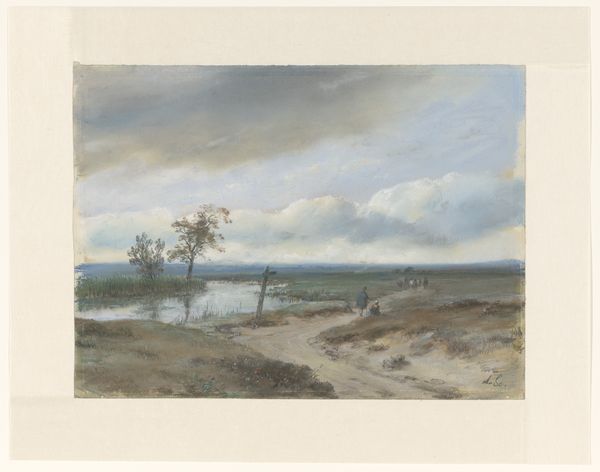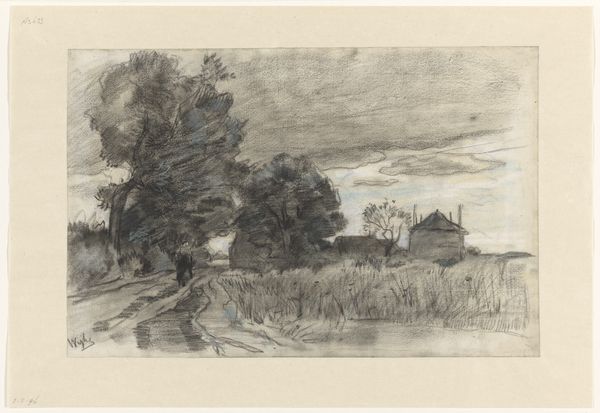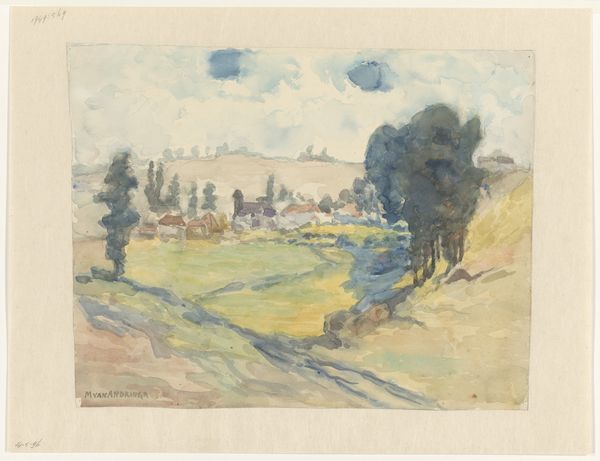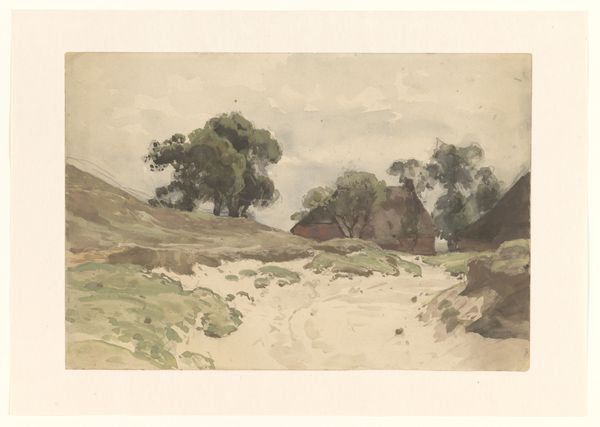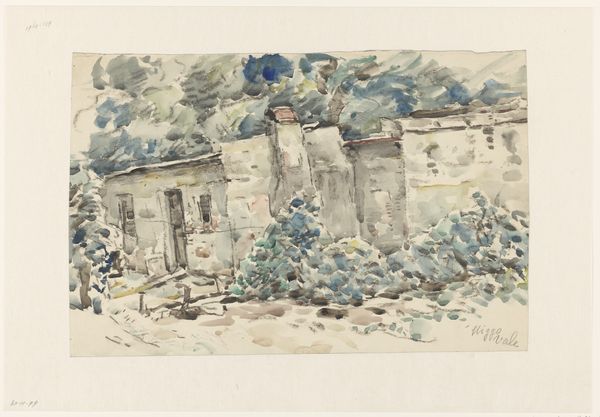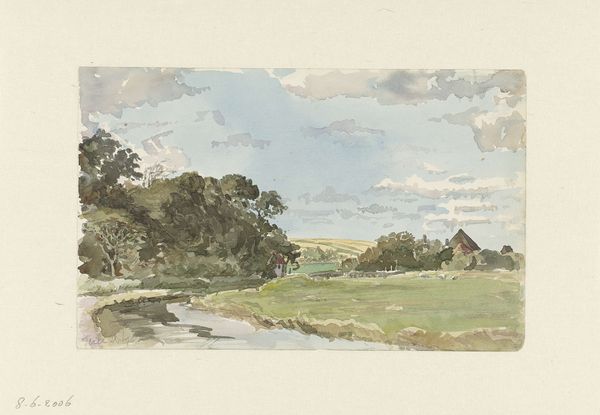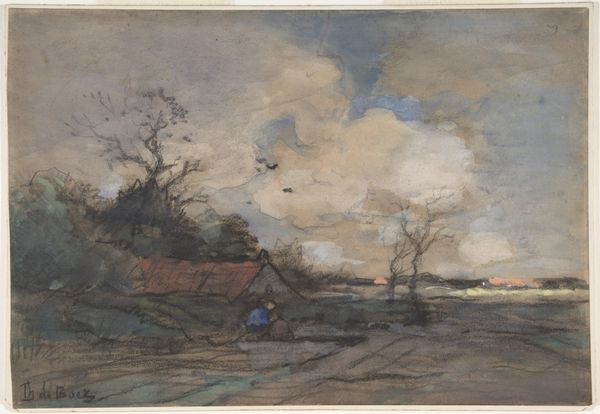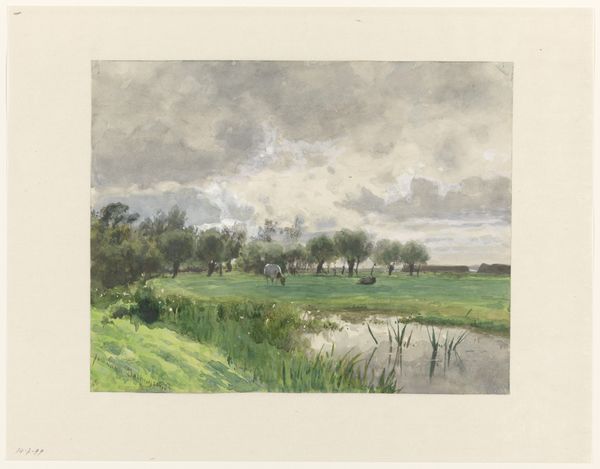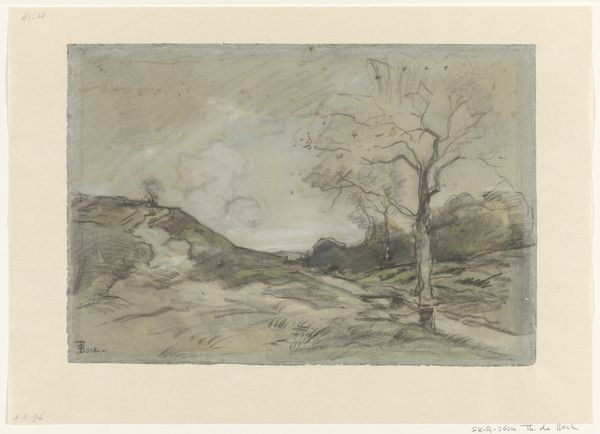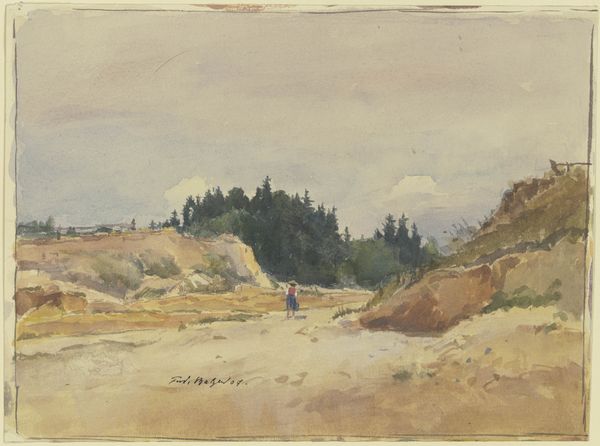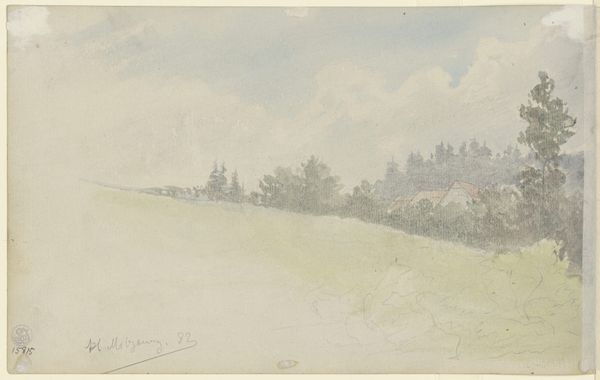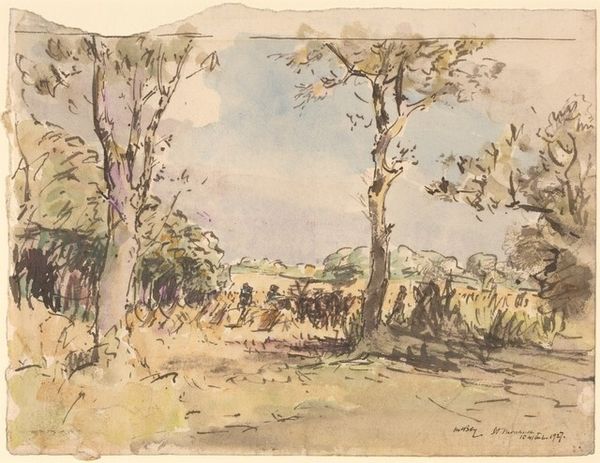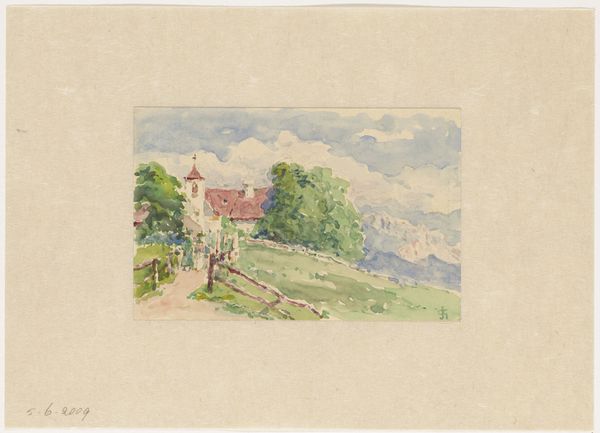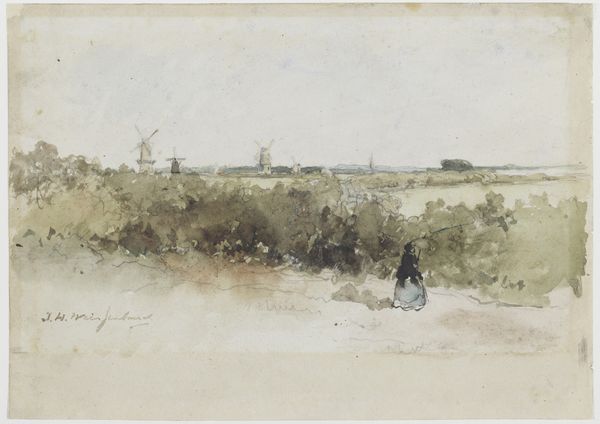
Landweg met enkele figuren, leidend naar een boerderij 1845 - 1925
0:00
0:00
juliusjacobusvandesandebakhuyzen
Rijksmuseum
plein-air, watercolor
#
plein-air
#
landscape
#
watercolor
#
watercolor
#
realism
Dimensions: height 245 mm, width 310 mm
Copyright: Rijks Museum: Open Domain
Julius Jacobus van de Sande Bakhuyzen created this watercolor painting, "Landweg met enkele figuren, leidend naar een boerderij," sometime in the 19th century. Bakhuyzen’s rendering of a country road leading to a farm evokes the rural landscapes that dominated Dutch art for centuries. The figures along the road, likely peasants, suggest a romanticized vision of country life. This image can be situated within the context of the art academy, where landscape painting was a popular, and politically neutral, genre. However, it’s worth noting the social conditions that shaped artistic production at the time. The Netherlands was undergoing rapid industrialization, and many artists turned to rural scenes as a way to critique the changes they saw happening in society. Did Bakhuyzen share these sentiments? Or was he simply catering to the market for nostalgic images of the Dutch countryside? To fully understand the meaning of this artwork, we need to consider the wider social and institutional context in which it was made, consulting sources such as exhibition reviews, artists’ letters, and economic data.
Comments
No comments
Be the first to comment and join the conversation on the ultimate creative platform.
